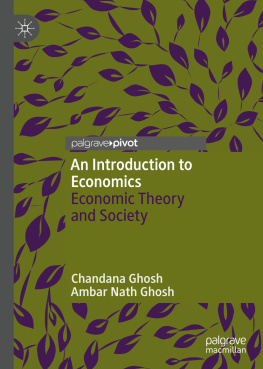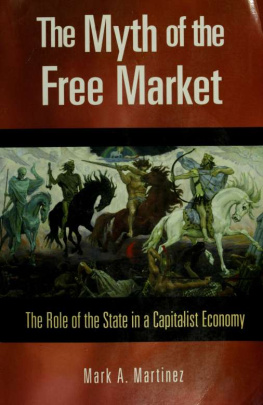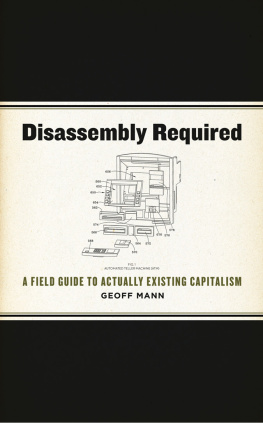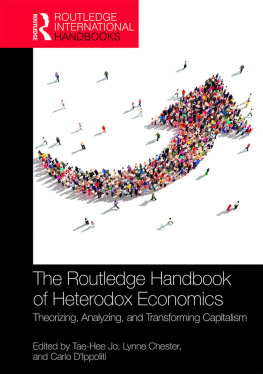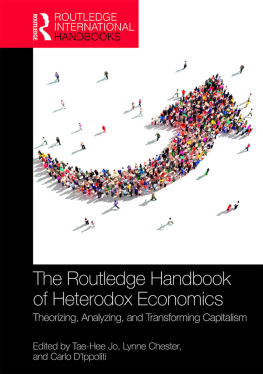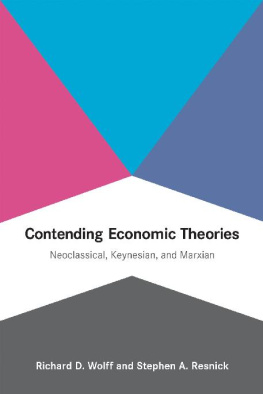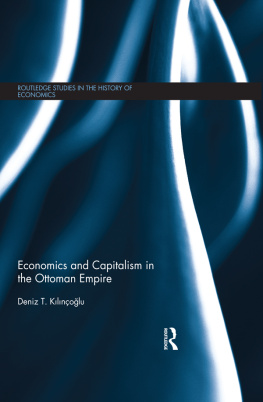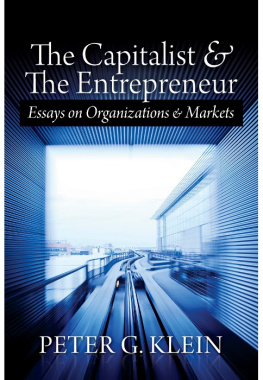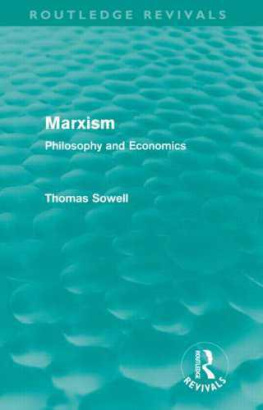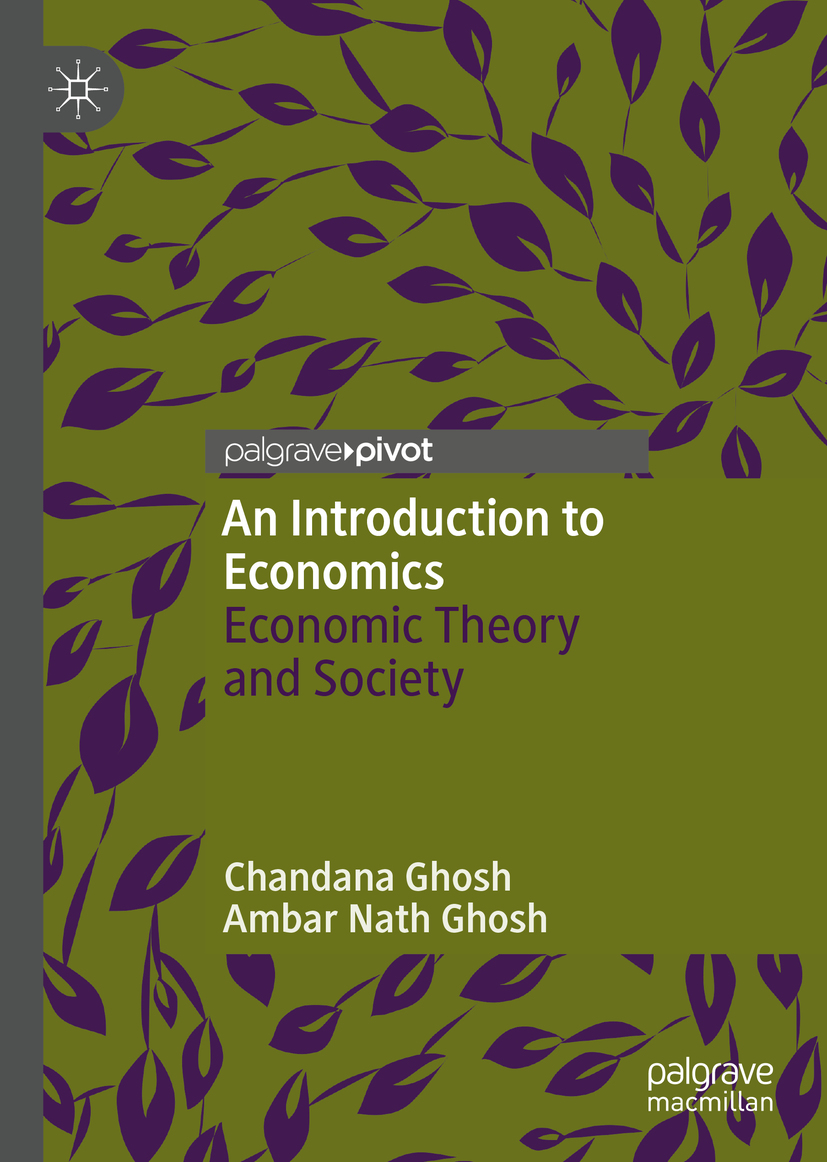Chandana Ghosh and Ambar Nath Ghosh
An Introduction to Economics
Economic Theory and Society
Chandana Ghosh
Economic Research Unit, Indian Statistical Institute, Kolkata, West Bengal, India
Ambar Nath Ghosh
Economics Department, Jadavpur University, Kolkata, West Bengal, India
ISBN 978-981-15-1055-7 e-ISBN 978-981-15-1056-4
https://doi.org/10.1007/978-981-15-1056-4
The Editor(s) (if applicable) and The Author(s), under exclusive license to Springer Nature Singapore Pte Ltd. 2019
This work is subject to copyright. All rights are solely and exclusively licensed by the Publisher, whether the whole or part of the material is concerned, specifically the rights of translation, reprinting, reuse of illustrations, recitation, broadcasting, reproduction on microfilms or in any other physical way, and transmission or information storage and retrieval, electronic adaptation, computer software, or by similar or dissimilar methodology now known or hereafter developed.
The use of general descriptive names, registered names, trademarks, service marks, etc. in this publication does not imply, even in the absence of a specific statement, that such names are exempt from the relevant protective laws and regulations and therefore free for general use.
The publisher, the authors and the editors are safe to assume that the advice and information in this book are believed to be true and accurate at the date of publication. Neither the publisher nor the authors or the editors give a warranty, expressed or implied, with respect to the material contained herein or for any errors or omissions that may have been made. The publisher remains neutral with regard to jurisdictional claims in published maps and institutional affiliations.
This Palgrave Pivot imprint is published by the registered company Springer Nature Singapore Pte Ltd.
The registered company address is: 152 Beach Road, #21-01/04 Gateway East, Singapore 189721, Singapore
Dedicated to the memory of our revered teacher
Professor Arup Mallik
A thinker, mentor and teacher of the highest order who will live forever in the hearts of his mesmerized students
Preface
Almost all the introductory textbooks today focus exclusively on neoclassical economics. In fact, students of economics these days get an impression that neoclassical economics constitutes the whole of modern economics and it represents an objective and scientific inquiry into economic phenomena. In reality, economics is intimately related to the two classes of people living in any society: the rich and the poor. Accordingly, it has two dominant lines of thought: one seeks to further the interest of the rich and the other seeks to safeguard the interest of the poor. The former started with the writings of Malthus and finally culminated in neoclassical economics. The latter started with Smith and found its fullest form in Marxian economics. Neoclassical economics portrays capitalist economies as the ideal form of human society, while Marxian economics constitutes a strong critique of capitalist societies. It portrays capitalist societies as exploitative and crisis-prone. It argues that the capitalists earn profit by exploiting workers and the compulsions of the capitalists to earn and increase profit and the fierce competition they are subject to perpetrate crises on capitalist societies. It also deduces that the workers will unite, rise en masse against capitalist exploitation and eventually get the capitalist society transformed into a vastly superior and just society called socialist society. He also points out that the socialist society will eventually evolve into the noblest form of human society called a communist society, where all men will be equal. The objective of the proposed book is to introduce the students to both these schools of thought. It also discusses Keynesian economics, which suggests measures that can counter some of the major crises that Marx said capitalist economies are subject to. To test the theories presented here against facts, we have discussed here the current state of the capitalist world. A careful analysis of evidences suggests that in the capitalist world, a handful of giant global capitalists usurp state power, and aided by neoclassical economics and religion, they run and manage capitalist economies in their own interest. They create instability and perpetrate crises in a planned manner to further their own interest. They build into capitalist societies a mechanism that forces the workers to make their labour and saving available to the capitalists at the minimum possible prices. The instability and crisis in a capitalist economy are an integral part of the mechanism of exploitation created by the giant capitalists.
It also discusses the economic performances of three major socialist states, the Soviet Union, China and Cuba. They come out as truly civilized societies where the central goal of the economic activities is to provide every individual in the labour force with gainful employment that best suits his ability and to supply every citizen with the basic necessities of life such as quality food, clothing and shelter on an adequate scale and create a universal system of health care and education that will provide every citizen with these services free of cost. However, relentless hostility of the mighty capitalist powers caused immense troubles for the socialist states. It led to the collapse of the Soviet Union, forced China to undertake market-oriented reforms and put up tremendous hurdles on the way of Cubas economic progress. The book also suggests strategies by means of which the poor masses in the capitalist world can put a stop to capitalist exploitation and move towards building a just and equal socialist society.
The book is extremely important, as it is essential for the students to get an introduction to both the schools of thought, which, in our view, constitute economics. The students should know what roles the two schools of thought have played and are playing in shaping peoples lives and societies. The students should have a clear idea as to why Marxian economics is no longer taught in the capitalist world and the role they should play in getting their extremely unequal and unjust societies transformed into just and equal socialist societies.
Chandana Ghosh
Ambar Nath Ghosh
Kolkata, West Bengal, India
Contents
List of Figures
List of Tables
1. Introduction
This chapter introduces and motivates the issues to be covered in this book. It argues that economics is an instrument of class war and, hence, it is divided into two major traditions. One line of thought, which culminated into neoclassical economics, seeks to further the interest of the giant capitalists and facilitate the expansion of capitalism. The other school of thinking, which found its fullest form in Marxian economics, seeks to improve the lot of the poor. Marxian economics constitutes a strong critique of capitalism and posits a socialist society (which will eventually transform into a communist society) as vastly superior to a capitalist society. Through this argument, this chapter explains why this book presents and discusses both neoclassical and Marxian economics and their visions of capitalism. It also makes it clear why, as the book does, it is imperative to assess both neoclassical economics and Marxian economics in the light of the recent economic performances of the major capitalist countries. Since Marxian economics regards a socialist society as a just, stable and humane society and, therefore, vastly superior to a capitalist society, this chapter argues, as has been done in this book, that it is necessary to present the economic performances of the major socialist countries and compare them to those of the major capitalist countries to verify Marxs position.

